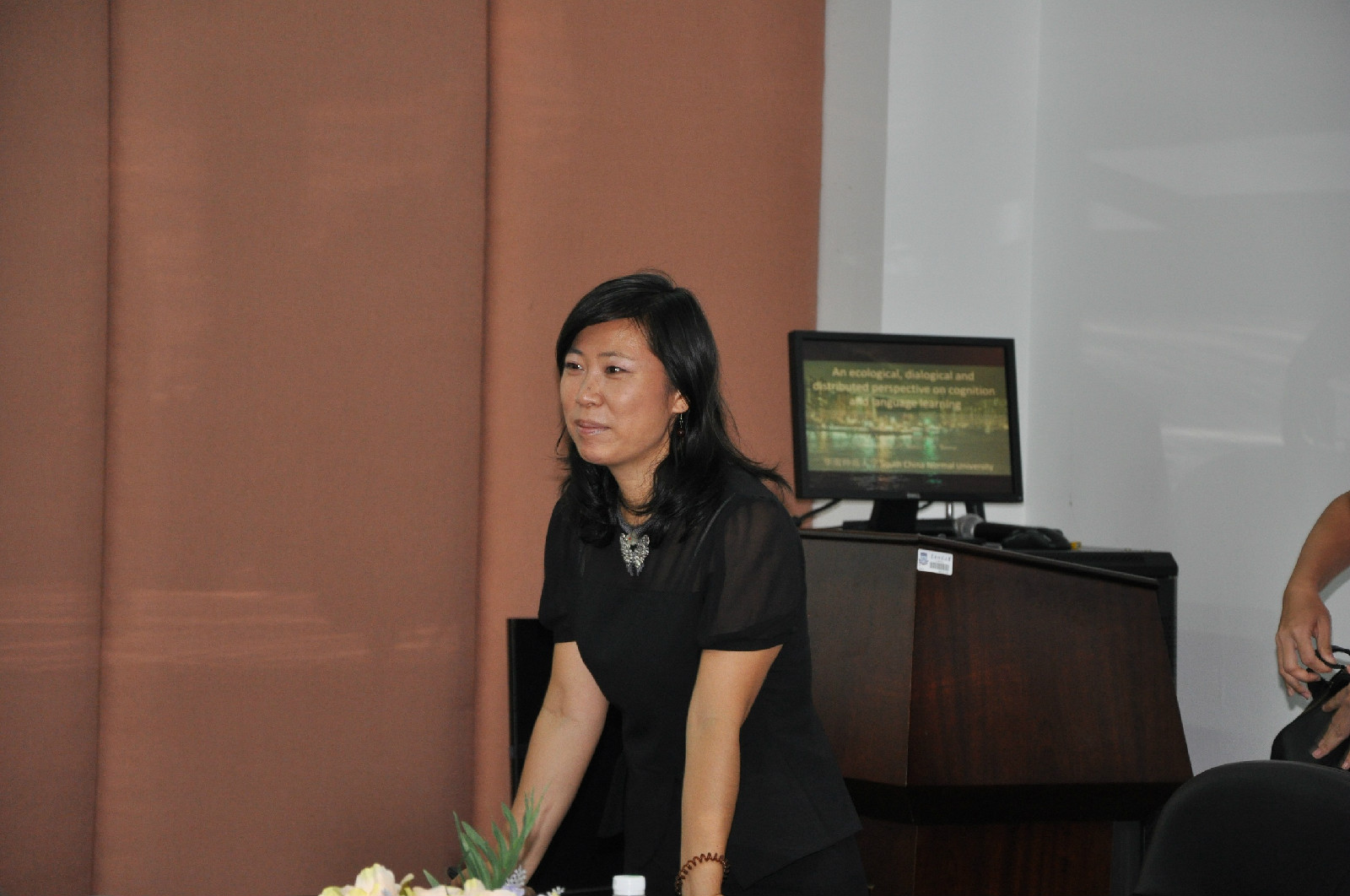主讲人:郑东萍
报告会题目:教室与虚拟现实生态环境对比:言语行动与续
时间:6月18日周二下午4:00
地点:外语楼517
主讲人简介:
郑东萍博士现任教于美国夏威夷大学二语研究系,博士生导师。美国康涅狄克州大学教育心理学博士。国际互动关系、语言及认知学会常任理事,广东外语外贸大学外国语言学及应用语言学研究中心兼职研究员,吉林外国语大学白山学者。学术论文发表于世界著名的语言与跨文化交流SCI 、SSCI期刊,如Modern Language Journal, Language Sciences, Linguistics and Education等。
课题研究包括:1. 怎样通过设计虚拟仿真游戏空间环境扩展其跨文化交流与协调的功能性,及跨文化双向互动对语言认知和文化交流技巧的影响;2. 用移动无限通讯技术为平台的设计App,检测并培养对地方处所环境及他人的觉知性,从而让学习者达到即时的学以致用,扩展认知、学习和文化交流空间,激发社会文化参与和实现价值的潜能;3. 创新立足于国学、适于亚洲文化社会的语言学习理论与实践。主要提出行动协商理论(Negotiation for Action)、言语行动的价值实现理论(Languaging as Values-realizing) 、关护行动语言学习理论 (Language Learners as Caretakers)、从语言学习者到跨文化场所体验者(From Language Learner’s identity to Cross-Cultural and Place-Taking Persons)。
研究领域为:应用生态心理学,对话学,分布认知及语言理论来扩张以人文为中心的传统二语习得理论;基于儒家的角色伦理学和道德经发展,诠释与发展以友谊(event friendship)、集体分布(distributed)、言语行动(languaging)为中心的寓教于乐的学习理论,以乐感文化和正念为驱动的跨文化交流行动。
内容摘要:
This study adds to a new area of research that seeks to harmonize language teaching practices in classrooms and language learning in virtual environments. Harmonious languaging uses co-actional and symmetrical structural dynamics to compare among three environments in a Chinese school: a baseline traditional classroom using textbooks, the virtual space of Quest Atlantis and a comparable class using print-based handouts. Each has a different design and thus affordances, through contingency, and we show that these affect the languaging-style. We found respective languaging-styles: 1. Contingent upon the teacher: answering questions, correcting, inquiring, repeating, and writing in forms of notetaking; 2. Contingent upon Quest Atlantis virtual material artefacts: Individuating multiscalar coordination between reading and writing 3. Contingent upon the teacher and the handout: answering questions, self-expressing and reflection. These styles are important for pedagogy and, in our opinion, the field neglects the harmonious languaging style that arises around virtual worlds. There is lack of engagement with language-as-part-of-nonlinguistic-action. From the distributed view, we showed an example of how foreign language learning is facilitated in an experiential domain where verbal patterns are evaluated immediately in the coordination of reading and writing, for which avatar actions, clicking links, and looking up in dictionaries become other-oriented modes of ambient action. This rapid style of languaging loop between reading and writing resonates with Xu (续,e.g., Wang, 2016), to continue, to use in more creative ways, which has been proven effective. I hope this talk will engage the audience to converse around ecological concepts of Xu and languaging, which perhaps will inspire harmonious dialogue between monologism and dialogism, language to learn and language to become, self-centered and other-oriented pedagogies. (This talk is based on data from a co-authored manuscript.)
